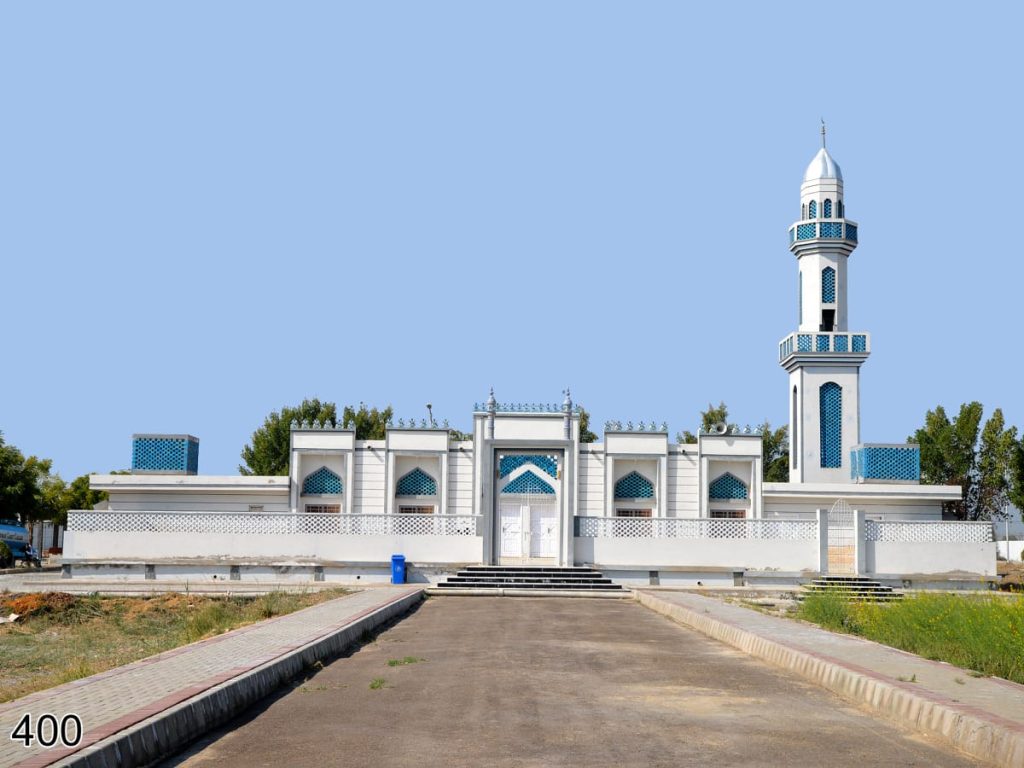
we place great importance on the spiritual well-being of our cadets. Our Mosque is a sacred and peaceful space where cadets can engage in regular worship, reflection, and spiritual development. It is an integral part of the college, offering a place for prayer, contemplation, and community connection, while also fostering a strong sense of discipline, humility, and devotion.
1. A Dedicated Space for Worship
The Mosque is designed to accommodate all cadets for daily prayers, offering a serene and tranquil environment that encourages spiritual focus and connection with the Creator. It is open throughout the day for Salah (prayers), and cadets are encouraged to participate in congregational prayers, including the five daily prayers and Jumu’ah (Friday prayers).
Key Features:
- Prayer Facilities: The mosque is equipped with separate prayer areas for male and female staff and cadets, ensuring privacy and comfort.
- Qibla Direction: The mosque is properly oriented towards the Qibla (the direction of the Kaaba in Makkah), providing a conducive environment for worship.
- Prayer Times: Cadets are encouraged to maintain punctuality in performing the five daily prayers. Prayer schedules are communicated regularly to ensure that cadets can manage their academic and spiritual commitments.
2. Religious Education and Reflection
In addition to serving as a place of worship, the mosque is also a hub for religious education. Regular Islamic studies classes and lectures are conducted to deepen the cadets’ understanding of Islamic principles, history, and teachings. These sessions help cadets develop a strong moral compass, fostering values such as compassion, honesty, and respect for others.
Spiritual and Educational Programs:
- Islamic Studies Classes: These classes provide cadets with a deeper understanding of the Quran, Hadith (Prophetic traditions), and Islamic ethics.
- Quranic Recitation and Hifz (Memorization): Special classes are held to encourage cadets to learn and recite the Quran with proper pronunciation (Tajweed). Some cadets may also engage in the Hifz program, where they memorize the Quran.
- Religious Lectures and Sermons: Regular lectures are delivered by qualified religious scholars to help cadets strengthen their faith and improve their character.
3. Promoting a Spirit of Discipline and Reflection
The mosque encourages an atmosphere of discipline and introspection. It serves as a place for cadets to take time out from their busy schedules for quiet reflection, gratitude, and prayer, helping them to maintain balance and inner peace.
Key Practices:
- Dua (Supplication) and Dhikr (Remembrance of Allah): The mosque is a place where cadets can engage in supplication and remembrance, seeking peace and guidance in their daily lives.
- Spiritual Retreats and Religious Camps: Periodic spiritual retreats and religious camps are organized to give cadets a deeper connection to their faith, allowing them to reflect on their personal and spiritual journeys.
4. Encouraging Social Responsibility
The mosque also plays a role in promoting social responsibility among cadets. Through acts of charity (Sadaqah) and community service, cadets are encouraged to engage in activities that contribute to the welfare of others. These practices help instill values of empathy, kindness, and generosity, which are central to Islamic teachings.
Community Involvement:
- Charity Drives and Volunteer Work: Cadets are encouraged to participate in charitable initiatives, helping those in need in the local community and beyond.
- Interfaith Tolerance and Respect: The college also emphasizes the importance of respecting all faiths and cultures, fostering an environment of tolerance, understanding, and peaceful coexistence.